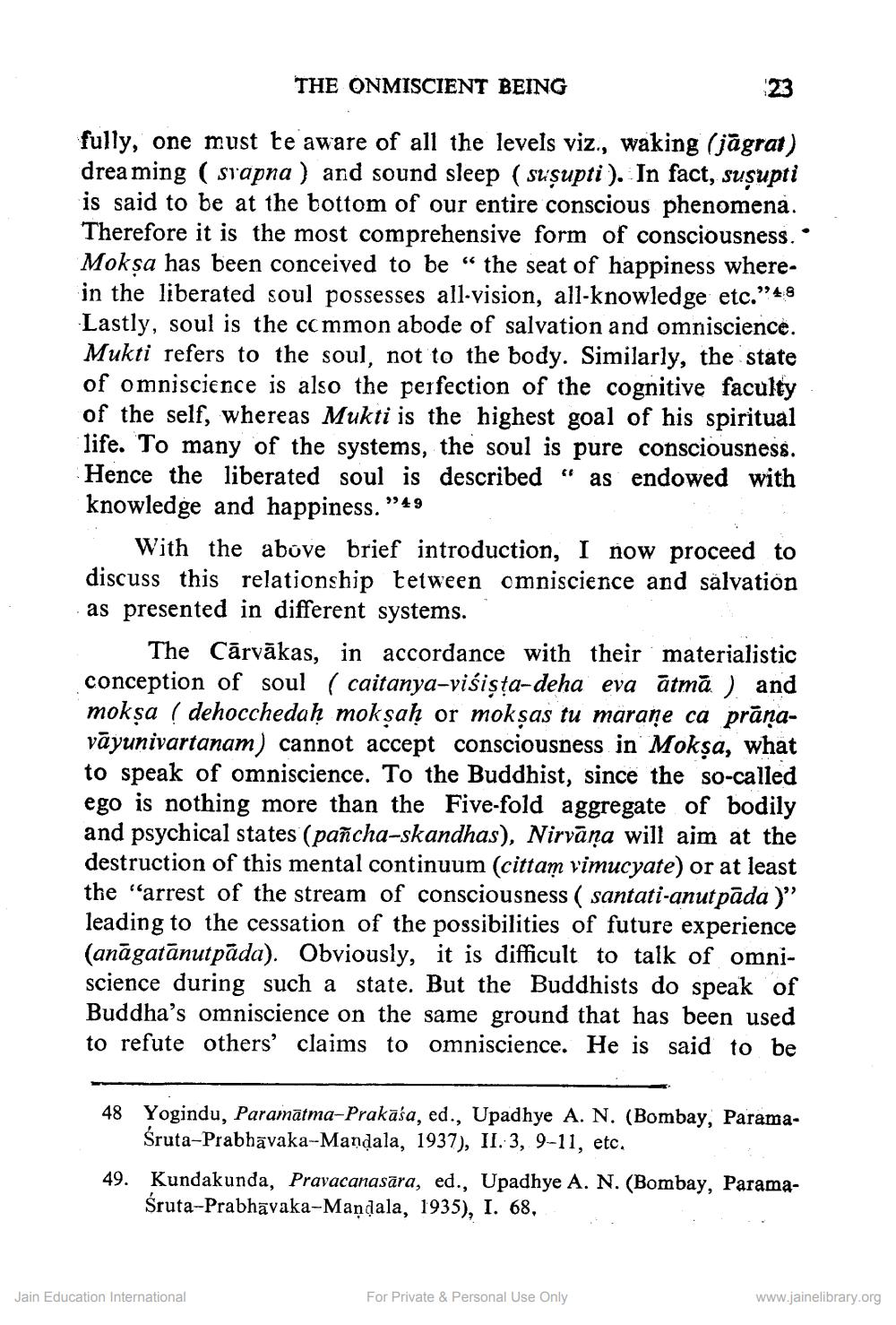________________
THE ONMISCIENT BEING
fully, one must be aware of all the levels viz., waking (jāgrat) dreaming (svapna) and sound sleep (susupti ). In fact, susupti is said to be at the bottom of our entire conscious phenomena. Therefore it is the most comprehensive form of consciousness. Mokṣa has been conceived to be "the seat of happiness wherein the liberated soul possesses all-vision, all-knowledge etc."48 Lastly, soul is the common abode of salvation and omniscience. Mukti refers to the soul, not to the body. Similarly, the state of omniscience is also the perfection of the cognitive faculty of the self, whereas Mukti is the highest goal of his spiritual life. To many of the systems, the soul is pure consciousness. Hence the liberated soul is described " as endowed with knowledge and happiness. "49
23
With the above brief introduction, I now proceed to discuss this relationship between omniscience and salvation as presented in different systems.
The Cārvākas, in accordance with their materialistic conception of soul (caitanya-visiṣṭa-deha eva ātmā) and mokṣa (dehocchedaḥ mokṣaḥ or mokṣas tu marane ca prāṇavayunivartanam) cannot accept consciousness in Moksa, what to speak of omniscience. To the Buddhist, since the so-called ego is nothing more than the Five-fold aggregate of bodily and psychical states (pañcha-skandhas), Nirvana will aim at the destruction of this mental continuum (cittam vimucyate) or at least the "arrest of the stream of consciousness (santati-anutpāda)" leading to the cessation of the possibilities of future experience (anāgatānutpāda). Obviously, it is difficult to talk of omniscience during such a state. But the Buddhists do speak of Buddha's omniscience on the same ground that has been used to refute others' claims to omniscience. He is said to be
48 Yogindu, Paramatma-Prakasa, ed., Upadhye A. N. (Bombay, ParamaŚruta-Prabhavaka-Mandala, 1937), II. 3, 9-11, etc.
Jain Education International
49. Kundakunda, Pravacanasara, ed., Upadhye A. N. (Bombay, ParamaŚruta-Prabhavaka-Maṇḍala, 1935), I. 68,
For Private & Personal Use Only
www.jainelibrary.org




